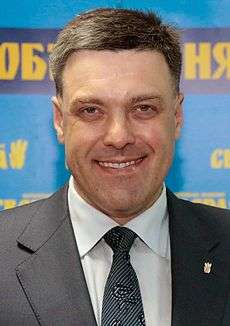Ukrainian parliamentary election, 2019
|
| |||||||||||||||||||||||||||||||||||||||||||||||||||||||||||||||||||||||||||||||||
| |||||||||||||||||||||||||||||||||||||||||||||||||||||||||||||||||||||||||||||||||
423 of 450 seats to the Verkhovna Rada of Ukraine 226 seats needed for a majority | |||||||||||||||||||||||||||||||||||||||||||||||||||||||||||||||||||||||||||||||||
|---|---|---|---|---|---|---|---|---|---|---|---|---|---|---|---|---|---|---|---|---|---|---|---|---|---|---|---|---|---|---|---|---|---|---|---|---|---|---|---|---|---|---|---|---|---|---|---|---|---|---|---|---|---|---|---|---|---|---|---|---|---|---|---|---|---|---|---|---|---|---|---|---|---|---|---|---|---|---|---|---|---|
| Opinion polls | |||||||||||||||||||||||||||||||||||||||||||||||||||||||||||||||||||||||||||||||||
| |||||||||||||||||||||||||||||||||||||||||||||||||||||||||||||||||||||||||||||||||
| |||||||||||||||||||||||||||||||||||||||||||||||||||||||||||||||||||||||||||||||||
The next Ukrainian parliamentary elections must be held no later than 2019. Due to the March 2014 annexation of Crimea by Russia and the occupation of parts of Donetsk Oblast and Luhansk Oblast by separatists (since April 2014), only 423 of 450 seats in Verkhovna Rada can currently be elected under current election laws and roughly 12 percent of Ukrainian voters cannot participate in the elections.[1]
Background
Following the 2014 parliamentary elections, the Petro Poroshenko Bloc (PPB) party became the largest party, after securing 132 seats. On 21 November 2014, the Petro Poroshenko Bloc, People's Front, Self Reliance, Fatherland and the Radical Party all signed a coalition agreement.[2] Arseniy Yatsenyuk became Prime Minister on 2 December 2014.
The Radical Party left the coalition on 1 September 2015 in protest over a vote in parliament involving a change to the Ukrainian Constitution that would lead to decentralization and greater powers for areas held by pro-Russian separatists.[3] February 2016 saw the start of the fall of the Yatsenyuk cabinet after the economy minister Aivaras Abromavičius announced his resignation claiming the government did not have real commitment to fight corruption.[4] On 17 and 18 February 2016 the Fatherland and Self Reliance parties left the coalition; meaning that the coalition became 5 deputies short of the 226 needed.[5] On 14 April 2016 Volodymyr Groysman became the new Prime Minister and the Groysman government began with a new cabinet of ministers.[6]
Parties
The table below lists parties represented in the Verkhovna Rada after the 2014 parliamentary election.
| Name | Ideologies | Leader | 2014 result | ||
|---|---|---|---|---|---|
| Votes (%) | Seats | ||||
| Petro Poroshenko Bloc | Christian democracy | Vitali Klitschko | 21.8% | 138 / 450 | |
| People's Front | National conservatism | Arseniy Yatsenyuk | 22.1% | 81 / 450 | |
| Opposition Bloc | Social liberalism | Yuriy Boyko | 9.40% | 43 / 450 | |
| Revival | Developmentalism | Viktor Bondar | – | 26 / 450 | |
| Self Reliance | Liberal conservatism, Christian democracy | Andriy Sadovyi | 11.0% | 26 / 450 | |
| Radical Party | Right-wing populism | Oleh Lyashko | 7.44% | 20 / 450 | |
| Fatherland | Liberal democracy | Yulia Tymoshenko | 5.68% | 20 / 450 | |
| People's Will | Centrism | Yaroslav Moskalenko | – | 18 / 450 | |
| For life | Social democracy | Vadim Rabinovich | With Opposition Bloc | 3 / 450 | |
Party issues
| Issue | Radical Party | |||||||
|---|---|---|---|---|---|---|---|---|
| War in Donbass [7] | Anti-Minsk | Pro-Minsk | Anti-Minsk | Pro-Minsk | Pro-Minsk | Anti-Minsk | Anti-Minsk | Anti-Minsk |
| Ideology | National conservatism | Christian democracy | Liberal conservatism | Social liberalism | Social democracy | Right-wing populism | Ukrainian nationalism | Conservatism |
| Form of government | Parliamentary republic | Semi-presidential system | Parliamentary republic | Parliamentary republic | Federal republic | Semi-presidential system | Semi-presidential system | Presidential Republic |
| Status of russian and minor languages | No status | No status | No status | Regional status | Regional status | No status | No status | No status |
| NATO | Pro-NATO | Pro-NATO | Pro-NATO | Anti-NATO | Anti-NATO | Weighted Position | Pro-NATO[8] | Weighted Position |
Electoral system
Under current election laws 50% or 226 members of the Verkhovna Rada are elected by open party-list proportional representation with 5% electoral election threshold and the other 50% of the seats elected in 225 constituencies with a first-past-the-post electoral system in one round (candidate with the highest vote total wins).[9][10][11][12] Since 2014 in Ukraine negotiations on the introduction of 100% Party-list proportional representation elections with open lists.[9] Main lobbyists: Volodymyr Groysman, Self Reliance. Main opponents: Yulia Tymoshenko.[13]
Opinion polls
References
- ↑ Gerrymandering Ukraine? Electoral Consequences of Occupation by Paul D'Anieri, Sage Journals (9 August 2016)
- ↑ Five political forces sign coalition agreement, Interfax-Ukraine (21 November 2014)
Ukraine's parliamentary parties initial coalition agreement, Interfax-Ukraine (21 November 2014) - ↑ Ukraine Radical Party Quits Ruling Coalition After Deadly Clash, Bloomberg News (1 September 2015)
- ↑ Ukraine Economy Minister decides to resign, UNIAN (3 February 2016)
- ↑ Samopomich pulls out from ruling coalition in parliamen, Interfax-Ukraine (18 February 2016)
(in Ukrainian) "Self" comes from the coalition, Ukrayinska Pravda (18 February 2016)
Batkivschyna faction pulls out of coalition, UNIAN (17 February 2016)
Batkivshchyna faction leaves ruling coalition, Kyiv Post (17 February 2016) - ↑ "Ukraine MPs approve Volodymyr Groysman as new PM". BBC News. 14 April 2016. Retrieved 14 April 2016.
- ↑ http://gordonua.com/ukr/news/war/-minski-domovlenosti-vvazhajut-bezalternativnimi-dvi-partiji-jaki-pretendujut-na-potrapljannja-do-verhovnoji-radi-opituvannja-zn-ua-266633.html
- ↑ Program of Svoboda party
- 1 2 Electoral dead-end for Rada, UNIAN (29 September 2016)
- ↑ "Parliament passes law on parliamentary elections". Kyiv Post. Interfax-Ukraine. 17 November 2011. Retrieved 9 August 2015.
- ↑ "Ukraine: The Law on Election of the People's Deputies (Unofficial translation by IFES), 2011" (PDF). 17 November 2011. Retrieved 8 August 2015.
- ↑ The Distorted Will of the People, The Ukrainian Week (5 November 2012)
- ↑ https://focus.ua/country/302623/
External links
| Wikimedia Commons has media related to Ukrainian parliamentary election, 2019. |
- Homepage Central Election Commission of Ukraine (in Ukrainian)


.jpeg)


